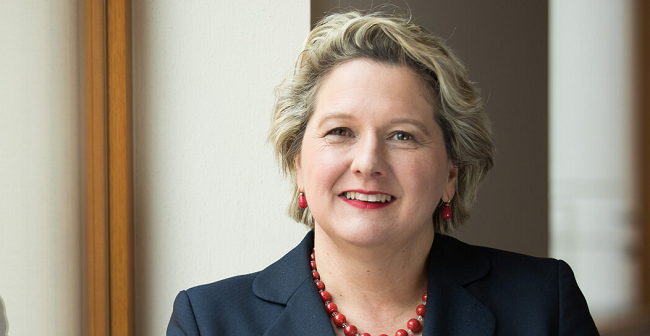At the opening of the 15th meeting of the Conference of the Parties to the Convention on Biological Diversity (COP15) on Monday, October 11, 2021, Germany’s Environment Minister, Svenja Schulze, outlined the nation’s priorities in the campaign to halt the global destruction of nature and loss of biodiversity.

The aim is to develop an effective global framework to conserve nature and restore degraded ecosystems throughout the world, according to Schulze, who is head of the German delegation at the conference, which is primarily taking place online.
Due to the coronavirus pandemic, COP15 has been divided into two parts. This week’s high-level segment will be followed in winter by negotiations at expert level. The Global Biodiversity Framework is expected to be adopted at the second COP15 meeting in April and May 2022.
Schulze said: “Never before in the history of humankind have so many of the Earth’s species been lost forever in such a short space of time. On average, one species becomes extinct every ten minutes. And the loss of biodiversity has long had serious economic repercussions too. At this critical juncture, the international community is coming together to pave the way for a new global framework that will call time on the destruction of ecosystems and loss of species.
“The UN Biodiversity Conference (COP15) is an opportunity to start afresh. But protecting individual species and sites is no longer enough. The destruction of nature has been going on for decades. Now we must reverse the trend and launch a decade of restoration.”
Biodiversity worldwide is said to be in a dire state. According to experts, the rate of species extinction today is many times higher than the average of the last ten million years. Many terrestrial and marine ecosystems have vanished due to land use, environmental pollution and climate change.
Just as the Paris Agreement for climate action was achieved, COP15 next spring aims to adopt the Global Biodiversity Framework. This week, the presidency of the negotiations will be officially handed over to China.
In the negotiations, the German Federal Environment Ministry is pursuing three priorities on which global mandates for action should be agreed: firstly, the need for more protected areas, and they have to be managed more effectively. The aim should be to place 30 percent of the Earth’s terrestrial and marine area under protection by 2030. This is roughly double the area currently protected on land, and around four times the extent of today’s marine protected areas. We must ensure that these sites are not protected on paper only. That calls for sensible management involving local communities. Germany will continue to support this goal with projects in developing and emerging countries.
Secondly, the country intends to decrease environmental pollution as a whole. For example, it says it needs specific reduction targets for over-fertilisation, pesticides and plastic waste – not just in protected areas, but everywhere.
Thirdly, following decades of environmental destruction, COP15 must usher in the start of a decade of restoring degraded ecosystems. For Germany, this means restoring the floodplains of straightened rivers, rewetting drained peatlands and returning commercial spruce forests to near-natural mixed woodland.
In the negotiations, the Federal Environment Ministry will advocate setting ambitious, quantifiable targets for these three priorities. To prevent these goals from being solely theoretical, Germany and the European Union believe that rules for monitoring success are needed. These have largely been lacking in the drafts discussed so far. The global goals must be translated into national commitments, and monitored and reviewed according to international standards.
“In Germany, the BMU has already created an important basis for this by establishing the National Centre for Biodiversity Monitoring in Leipzig. A regular review of the globally agreed goals is needed that will point out when we are veering off course for achieving our goals, and trigger a mechanism for accelerating implementation measures. Adequate finance that extends far beyond environment ministry funding is also necessary. Protecting our foundations of life is relevant for agricultural, development, budgetary, financial and many other policy areas as well,” Schulze stated.
